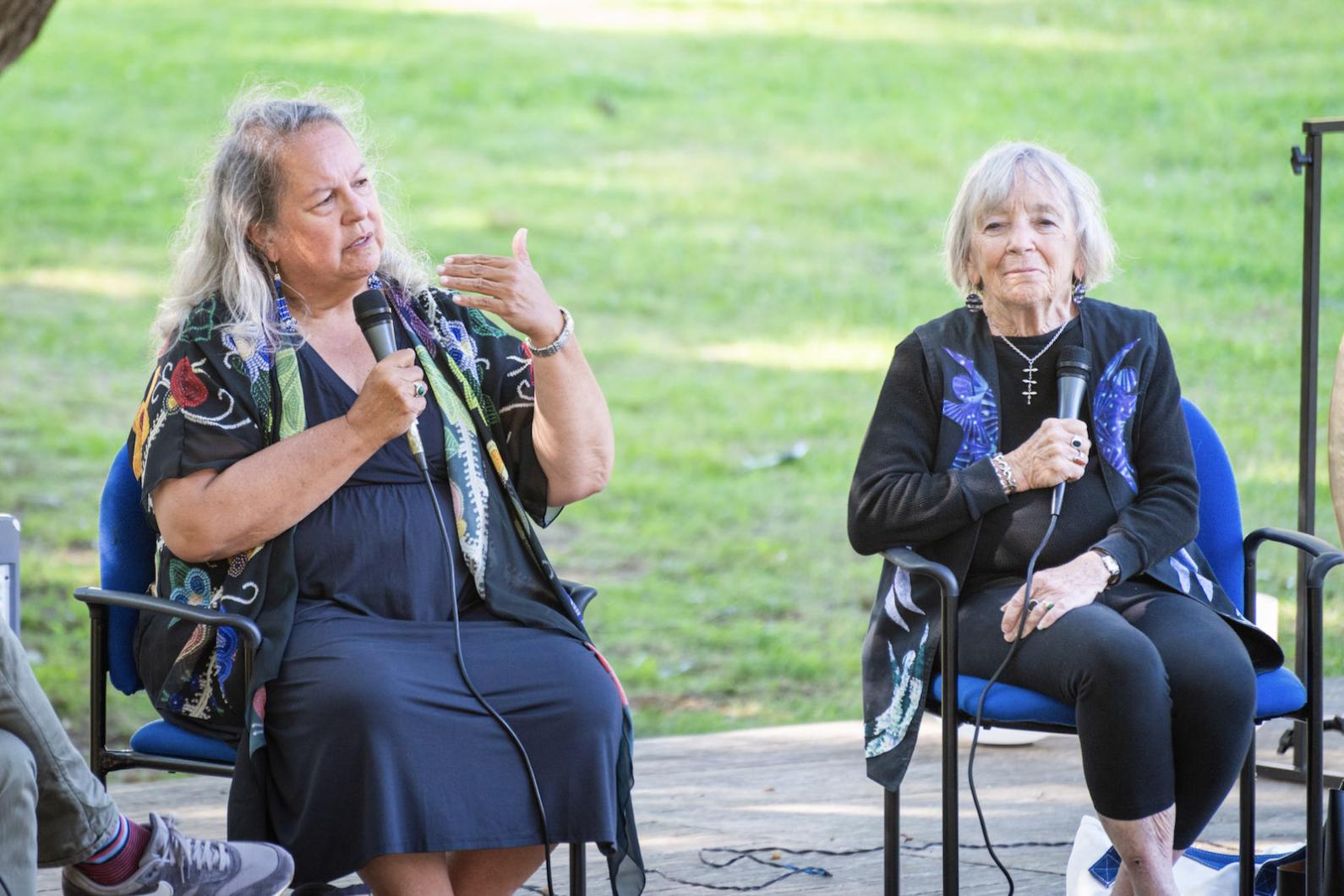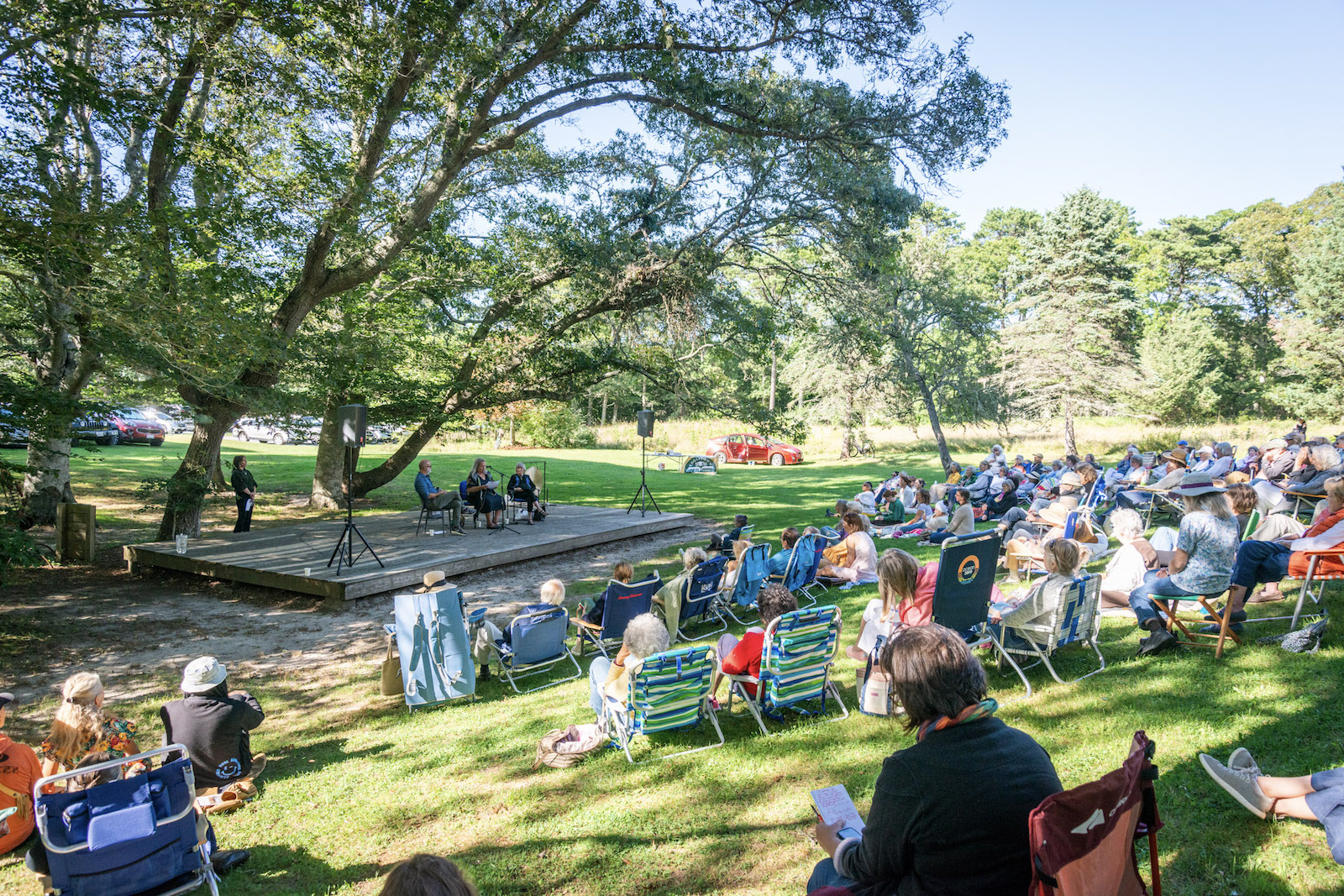On beach chairs and blankets scattered across the lawn at Featherstone Center for the Arts, a crowd of about 200 gathered last week to learn about the power of storytelling during a time of crisis.
The conversation between professors and authors Robin Wall Kimmerer and Ursula Goodenough, titled Writing to Heal the Earth, focused on the hope people can take from hearing stories that center around the interconnectedness of humanity and the natural world.
Mathea Morais, literary arts director at Featherstone, said the event was so popular they had to turn people away.
Ms. Kimmerer, PhD, is a professor of environmental biology and the author of Braiding Sweetgrass, a bestselling nonfiction work that raises up Indigenous knowledge as a supplement to Western science through her exploration of reciprocal relationships between humans, the land and all living things. She is an enrolled member of the Citizen Potawatomi Nation.
Ms. Kimmerer began by reading a passage from Braiding Sweetgrass, emphasizing the importance of the language we use to describe the things we see around us.
“I think it was a longing to understand the language I heard in the woods that led me to science,” she read, explaining that the Potawatomi language uses verbs to describe many things that English speakers see as nouns.
For example, the Potawatomi word for “bay” — wiikwegamaa — means “to be a bay.”
“The verb releases the water from bondage and lets it live,” Ms. Kimmerer said.
Ms. Goodenough is a resident of Chilmark, and Ms. Morais’s mother. She holds a PhD in biology from Harvard University and authored The Sacred Depths of Nature, a new edition of which was released in February. The book outlines religious naturalism, a way of looking at science with a sense of wonder and hope.
Ms. Goodenough shared passages from her book, unpacking religious naturalism and pointing out how science is an important way of experiencing the natural world but does not always reveal the whole story.
The event was moderated by Marc Favreau, author and editorial director of The New Press. He began by asking Ms. Kimmerer to talk about the reciprocal relationship between stories and nature.
Ms. Kimmerer said she thinks of stories as something that informs the way people think about the world.
“The stories of a world that is dead — that is just stuff that should be referred to primarily with nouns, not for their beingness — gives us a kind of a permission to treat the world as an object,” Ms. Kimmerer said. “It’s the ways in which we choose to participate in those stories that shape our cultures.”
Ms. Goodenough talked about the importance of realizing human beings all share one story.
“It is everybody’s story, the whole arising of the planet and life and matter, becoming cells and becoming organisms,” Ms. Goodenough said. “And so to have a story that we all share, I think is a very wonderful beginning to healing the Earth.”
To conclude the conversation, Mr. Favreau asked if the two women would share encouraging words about writing and storytelling. Both emphasized that stories have the power to change the world.
“We need to be story makers, and to live into the story of the world that we want to live in,” Ms. Kimmerer said. “In that way, we get a new vocabulary, we get a new vision, we get a new imagining of the world that we want.”
Audience questions and a guided meditation marked the formal end of the event, but many attendees waited afterwards to have copies of Braiding Sweetgrass and The Sacred Depths of Nature signed by the authors.
Ms. Morais said she was proud of the inspiring panel and happy to bring the conversation to Featherstone.
“It’s not often I get to introduce three of my heroes,” Mathea Morais, the literary arts director at Featherstone, said. “But that is the opportunity I have today.”









Comments
Comment policy »